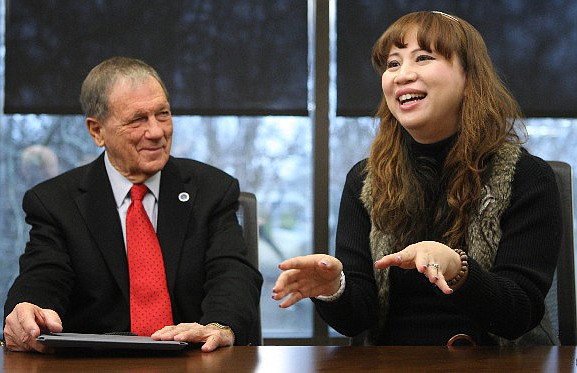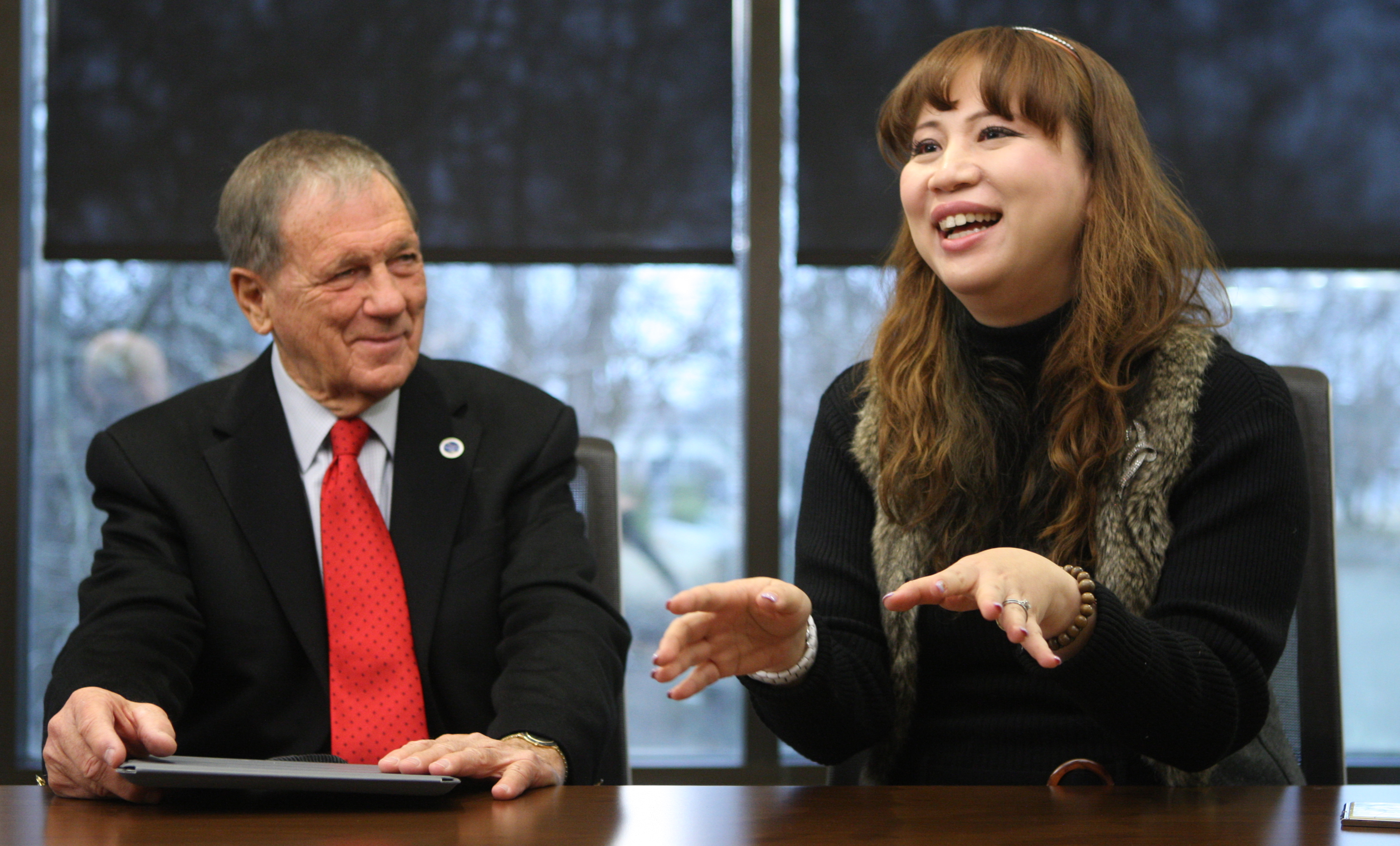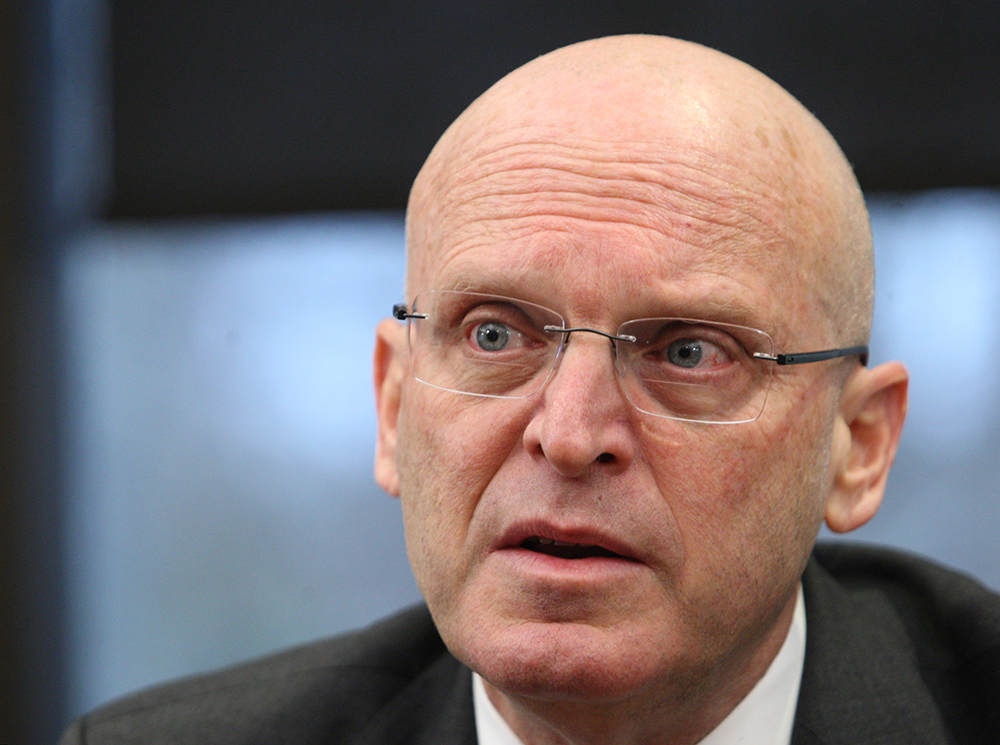A new marriage between Chattanooga's universities and Taiwan's National Pingtung Institute of Commerce could open a three-year exchange program between the two schools that potentially would add jobs and boost tourism in the Chattanooga area.
Chattanooga State Community College, the University of Tennessee at Chattanooga and Southern Adventist University each intend to court new students and faculty from abroad and send students back in return.
Terry Olsen, a Chattanooga-based immigration attorney, has been working to promote such a deal since 2005, he said.
"This has been a dream of mine for years," Olsen said.
The plan, which is still in the early stages, is to bring Taiwanese students to Chattanooga and vice-versa, while exposing the Scenic City's business community to some of the top minds in one of Asia's most powerful economies, said Jim Catanzaro, president of Chattanooga State.
"We're in a different era now," said Catanzaro, who has signed a memorandum of understanding with his counterpart in Pingtung. "We have to be on the cutting edge of this stuff."
Chattanooga State's program, which could include an exchange of business, communication and technology coursework, was spurred by a Taiwanese government decision to offer thousands of scholarships for students there to study overseas.
Those scholarships, along with recent changes to U.S. passport requirements, were expected to increase the number of Taiwanese citizens who visit the U.S. from 400,000 to 600,000 in 2013, said Anna Kao, director general at the Taipei Economic & Cultural Office in Atlanta.
Ching-Ying Lin, assistant professor at the National Pingtung Institute, who visited the Scenic City on Monday to tour Chattanooga State and a handful of local business and cultural sites, is still working out the details of any final plan to send Taiwanese and American students and faculty back and forth across the Pacific. A final agreement between Chattanooga State the Pingtung Institute is expected within 60 days, after Yin tours other area schools and reports back to the Taiwanese consulate in Atlanta.
Yet there are a number of challenges for the young program.
On the Taiwanese side, Yin will have to convince parents and students that spending a few weeks or a full semester in Chattanooga is a good idea. The trick will be to convince students to come to Chattanooga - which is relatively unknown abroad - rather than cities with starring Hollywood roles such as New York, Los Angeles and Miami.
Parents take an extremely active role in their children's education in Taiwan, which has a very low birthrate, and are not keen to take a chance on an unknown place, she said.
"It's hard for Taiwanese parents to send their child to a small town, not famous city," Yin said.
Students there, who are brought up with a collectivist, follow-the-leader mindset, are also loathe to go against the grain, she said.
"I always try to convince my students to come here, because this is real America," said Yin, who has lived in both Oklahoma and Kentucky, and finished her Ph.D at Texas A&M University. "Chattanooga is different from the big city. People here work hard, and you do have a lot of big companies here."
Ken Goldsmith, program director and associate professor at Chattanooga State, hopes that the exchange program will lead to a more open mindset on both sides of the ocean, as well as increased job growth and a deeper talent pool in Chattanooga.
Goldsmith, who took a year off to spend time in China, said students in such countries are often "frozen" when faced with open-ended projects, as opposed to individualistic American students who often have a hard time with team-based exercises.
"They were accustomed to being told, here is your assignment, here are the steps you need to do to complete it," Goldsmith said.
For the Taiwanese students to achieve success in the international business community, they'll have to learn to understand their customers' business habits and culture, he said.
Likewise, the American students have a lot to learn about working as a group, and integrating technology into the business world, he said. Students dislike having their grade tied to other students' work, he said, and a few eschew working together and simply finish the entire groups assignments themselves - virtually unheard-of in Taiwan.
Perhaps most importantly, officials hope that the program will lead to future direct investment by successful Taiwanese companies, as students who have been exposed to Chattanooga begin to climb the ranks. Some students could even decide to stay in Chattanooga, bringing a distinct set of technology and business skills with them.
"We sometimes underestimate the value of even one person traveling and experiencing a place, and what they bring back not only to their family, but to their institutions," Goldsmith said. "If you have a few students who study here, they'll be able to go back and talk about Chattanooga or Chattanooga State, and there will be a snowball effect."
For Chattanooga State students, participation in the program brings an entirely different set of concerns.
Without a nationwide study abroad grant program, students will have to rely on a handful of grants provided by the university itself. But at present, there isn't even an awareness that study abroad opportunities to Taiwan will be available, Goldsmith said, though the school does collect an "international fee" that could be converted to travel funds.
The key to the program's success will be to make it a two-way street, Goldsmith said. Relationships don't work if one party gives and gives, while getting nothing back in return.
"Our students can't afford it so they don't even think about it," he said. "I think we're going to have to look for, and select the right students for the first round. It's going to be more being able to provide scholarships to that first round of students to get that momentum. For us, it's critical to get students over there."
Contact staff writer Ellis Smith at esmith@timesfreepress.com or 423-757-6315.


